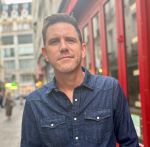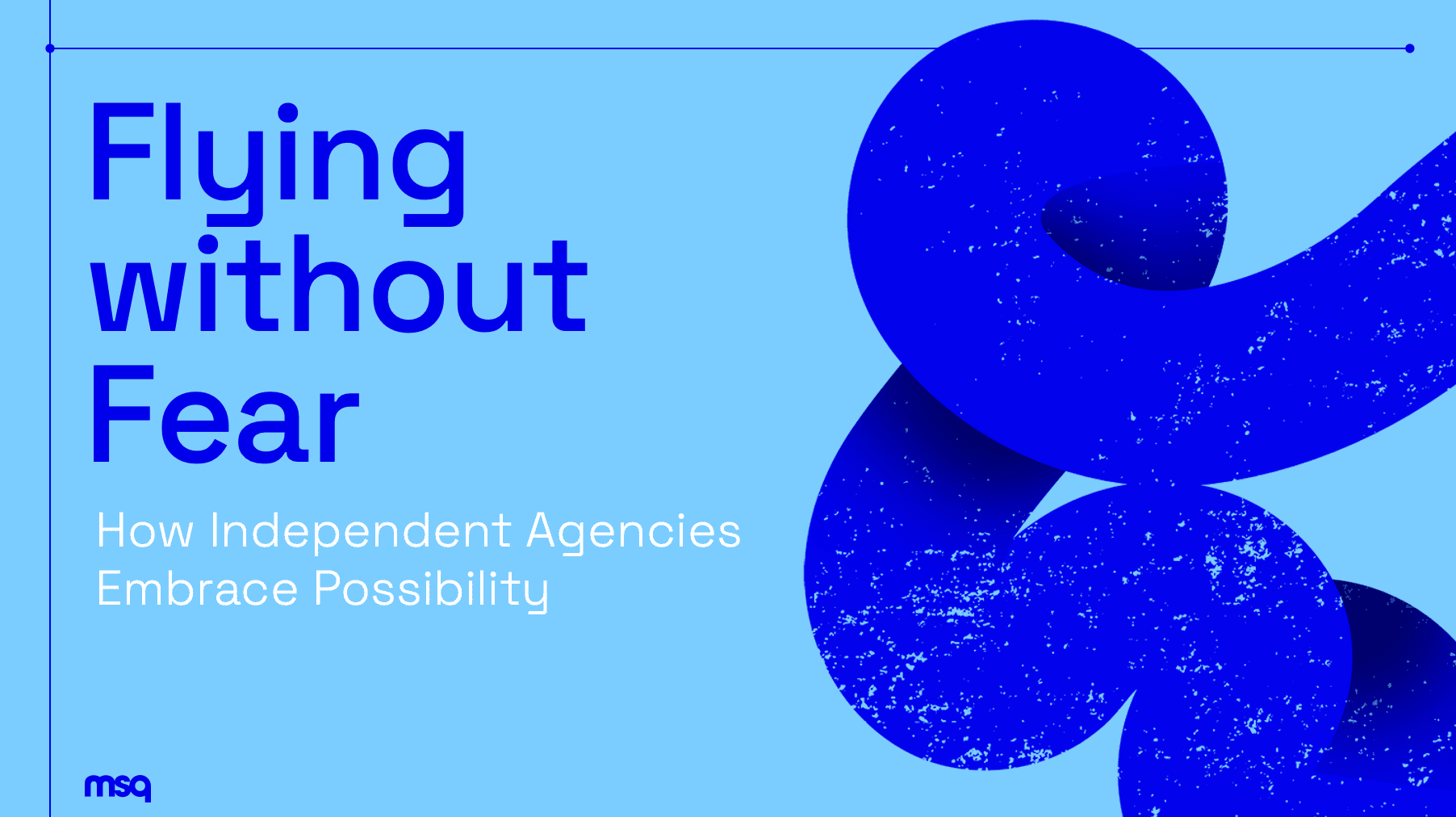Author
Justin Cox
Chief Strategy Officer, MSQ North America
Topic
- Culture
- HR/Talent/Inclusion
- Leadership
- Staff Development
- Talent
Fear is a feeling we’ve become used to over the past decade. This sense of dread feels like it hit its apex in the last year with the constant barrage of polarizing news and down trending charts everywhere we look.
We see it in headlines and in agency memos about endless mega-mergers, right-sizing staff, managing investor reactions to stock prices, the revolving door of CMOs, budget cuts, and the incessant swapping of one agency for another (regardless of performance). The recent merger announcement of Omnicom and IPG has only added to the cloud hovering over the industry.
Embracing the possibility of what ‘could be’ has been pushed aside by endless discussion of what could go wrong. The days of ambition, building long standing agency relationships, and taking calculated risks have been replaced by the propensity to act small, and do less. We’ve over indexed on scale and ease of use in favor of transactional marketing activities that make little impact beyond the last click.
This aversion to thinking outside of the box has had an outsized impact on our people and the culture of our business. And with all this uncertainty, it’s hard to argue that planning for what can go wrong is the only way to remain unscathed, especially when things can change at the drop of a hat.
In some ways, this anxiety reflects a broader culture where things feel more wrong than they feel right. We know too much, but don’t have the answers. Fear of what’s to come looms over our collective consciousness. The question for marketers is, will we get stuck in this mindset? Or is there a solution out there for all of us––clients, creatives, account leaders, and strategists––that we just haven’t thought about yet?
We spoke to agency leaders at independent networks, about what they believe is keeping our industry in a state of fear and asked them for tips on how they break the cycle in their own groups.
Let go of fear. It won’t help you win.
“There may be no industry more reactive or more dependent upon outside forces than marketing and advertising. It’s a tumultuous existence that teaches us all an important lesson—do not let the prospect of bad outcomes outweigh the prospect of good outcomes. Fear can turn organizations cynical to their core. We’ve learned to view fear of failure as a data point that should not receive greater weighting than the myriads of other data points that go into our decision making. The most important thing is to help people understand what to fear (after all, some fear is good). We shouldn’t fear the outcome, because we cannot predict it, and we are not in control of it. We shouldn’t fear trying, being wrong, or charting a less expected path. We shouldn’t fear not knowing the answer. We should fear doing just enough, phoning it in, and folding when things get tough.” – Aaron Lang, President MSQ NA
Adapt. Embrace new models, smaller margins, and alternate ways of working.
“We have to make peace with the fact that AOR relationships aren’t the norm anymore, and therefore, we must design our organizations to be able to take on project-based work and generate revenue with smaller margins. We need to staff our teams with people who will always find a way. True creativity isn’t boundless freedom. It’s the ability to do more with less. Independent agencies, free from bureaucratic constraints, are uniquely positioned to thrive in this reality.” – Jill Applebaum, Chief Creative Officer, Public Inc.
Culture is still a major key to success. Make it contagious.
“At Pereira O’Dell, we aim to create an environment where people feel genuinely supported to experiment and push boundaries, knowing they have the resources to pursue ambitious ideas. We celebrate not only the wins, but the attempts – when talented people see their colleagues taking smart risks and being recognized for it, ambition becomes contagious, and fear takes a backseat.” – Andrew O’Dell, Co-Founder & CEO, Pereira O’Dell / CEO, Serviceplan Americas
“Large-scale industry mergers and consolidations too often come at the expense of agency culture, and the cost to clients is unengaged teams who aren’t empowered to deliver bold, breakthrough creativity. This is why once iconic agencies have seen an exodus of industry talent striking out to start and join independents. Mekanistas celebrate the bold, the weird, and the optimistic while having each other’s backs and never compromising on pursuing what’s next. Our independence has preserved and protected our culture, and that’s how we keep our ambition trained on where we need to go next.” – Jason Harris, CEO and Co-Founder, Mekanism
Luckily, optimism is still out there, it just may not be in the place you first thought. Leaders of some of today’s best independent agencies and networks are at the forefront of pushing fear to the wayside and embracing why we got into this industry in the first place: to make great work and help clients connect with consumers. While we aren’t immune to some of the issues facing our industry, we are in control of their own destiny. And being in control of your destiny gives you a unique perspective on how to answer what is ailing us and make fear a thing of the past.
—

Over the last 24 years, Justin has held strategy and leadership positions in advertising, brand strategy, digital marketing and business development. Prior to MSQ, Justin led teams at Deloitte Digital, Heat, Pereira & O’Dell, Razorfish and Hal Riney. His global experience includes Skype, Sony, Electronic Arts, Microsoft, Intel, Instagram, Levi’s, and LG. Justin has been the recipient of over 30 awards from Cannes, Effie’s and One Show. He’s spoken at SXSW and Oracle Marketing World, and published articles in Campaign, Contagious and WSJ. He lives in the Bay Area with his family.





